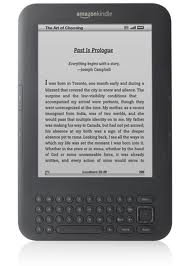The digital textbook market still seems likely to proceed at a snail’s pace. It also appears that the university textbook market may be a very different market segment from the broader book market represented by Barnes & Noble, Borders, and Chapters in Canada. Current UBC Bookstore estimates of E Reader textbook sales is 5%. Renting textbooks, textbook sharing, and just flat out electing not to buy the textbook still seem strong trends.
The high prices of the big textbook publishers, Wiley, Pearson, and Addison Wesley would cause one to surmise that the price of hardbound textbooks would drive students to much lower cost electronic licenses on e readers, but this does not seem to be the case. Theories abound as to the reason for this. A common explanation is fear of the technology not working at exactly the wrong moment, and limited or no technical support available, compared to the simplicity of old fashioned paper books.
This morning, a NPR Morning Edition story also delved into this topic, reporting on young readers who still want paper bound books, or as one suggested, they may want both paper and e book, but paper still trumps. It seems clear that there is strong consumer resistance to moving to e books.
Among technology’s top titans, the race is on to bring tablet-based digital textbooks into the classroom. Since launching the iPad, Apple (s AAPL) has made a big push in education, and its expected iPad Mini launch this week will likely open it up to an even wider range of education customers. Last week, Amazon (s AMZN) announced a new Whispercast feature to help schools centrally purchase and distribute content to a fleet of student devices. And Microsoft’s Surface (s MSFT), as well as Samsung’s Galaxy Note 10.1 and Chromebook (released with Google (s GOOG)), are also contenders for new classroom tools.
With each new launch, someone inevitably declares the impending end of physical textbooks, as though those tech giants control the levers responsible for the successful adoption of new technology in schools. But while the tech industry plays a significant role in the transition to digital textbooks, making devices…
View original post 837 more words


